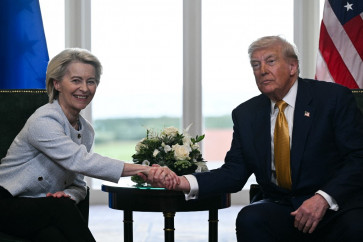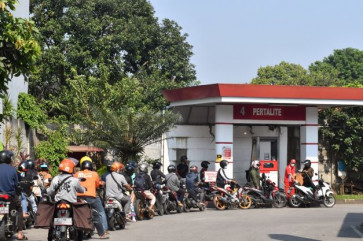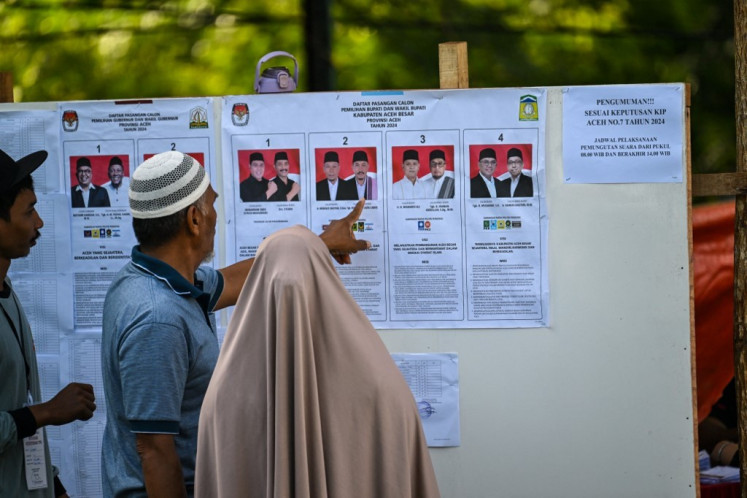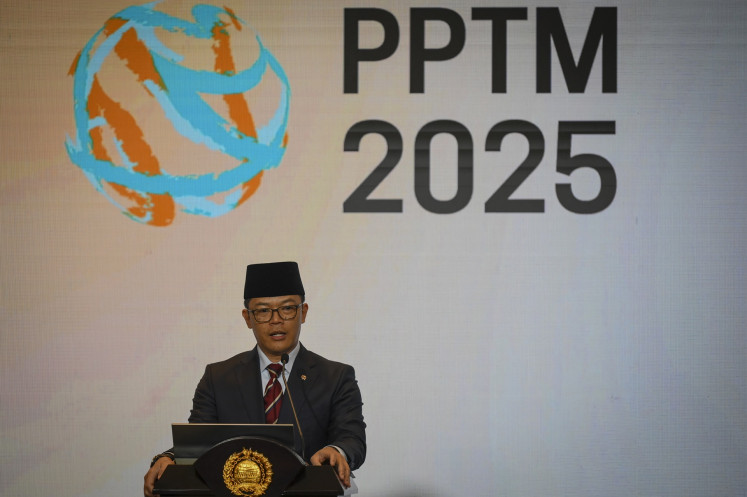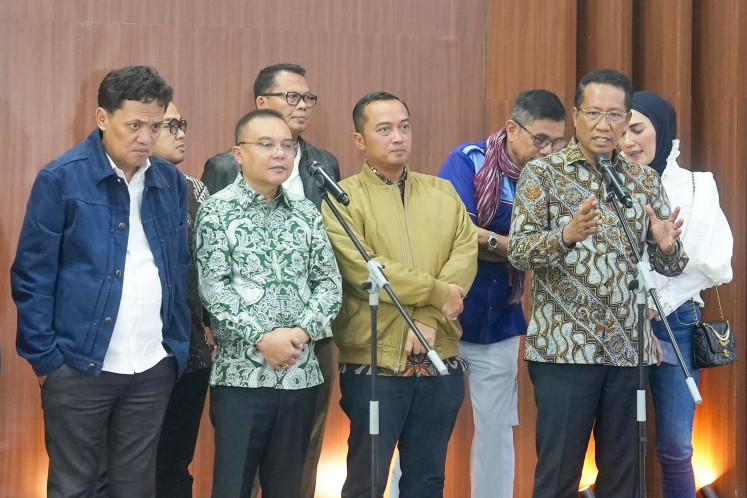Popular Reads
Top Results
Can't find what you're looking for?
View all search resultsPopular Reads
Top Results
Can't find what you're looking for?
View all search resultsEmirates NDB mulls establishment of Islamic banking unit in RI
Emirates NBD, the Middle Eastâs largest banking group by assets, is considering establishing a new Islamic banking center in Indonesia, a regulatory official has said
Change text size
Gift Premium Articles
to Anyone
E
mirates NBD, the Middle East's largest banking group by assets, is considering establishing a new Islamic banking center in Indonesia, a regulatory official has said.
Dhani Gunawan Idat, director for research and development, banking regulation and licensing at the Financial Services Authority (OJK), has confirmed that the bank was 'seriously' reviewing the possibility of establishing a subsidiary in the country.
'The bank will not acquire an existing Islamic lender in Indonesia, but rather will establish a new one,' Dhani said recently.
Dhani said the bank was planning to invest more than Rp 1 trillion (US$68.7 million) for the future subsidiary. The OJK demands that an Islamic bank have a minimum paid-up capital reserve of Rp 1 trillion before it can begin operation.
According to Dhani, the OJK is ready to receive the bank's application. The assessment and due diligence process could be completed by next year if the proposal was submitted as soon as possible by its shareholders.
'The review process will include a thorough study on the bank's background details, including its shareholders and board of management. The OJK will grant approval if we don't find any problematic issues during the review,' Dhani said.
Emirates NBD, which owns a wide array of operations in various regions in and beyond the Middle East, was formed in 2007 after a merger between Emirates Bank International and National Bank of Dubai (NBD), the second and fourth largest banks in the United Arab Emirates, respectively.
According to its latest financial report, Emirates NBD has US$105.6 billion in its total assets and operates 220 branches as well as 900 automated teller machines (ATMs) and cash deposit machines (CDMs) worldwide. In 2013, Emirates NBD opened an office in Jakarta as an extension of its regional branch office in Singapore to help seek opportunities for syndicated and corporate loans in Indonesia.
The bank saw that Indonesia made up the largest part of its Singapore branch's business, according to Emirates NBD international general manager Kevin Flannery during the office opening in 2013.
Because the bank has also opened offices in Beijing, China and Mumbai, India in the past few years, it is expected that the efforts in Indonesia could help the headquarters to increase the contribution of markets outside the UAE, including the Asia Pacific, by 20 percent of its total assets.
Despite the fact that economic growth fell to a six year-low of 4.7 percent in the first half of this year, the country's banking industry, including the Islamic finance sector, was still deemed as having potential to grow in the future.
OJK deputy commissioner for banking supervision Mulya Effendi Siregar said the country's Islamic banking industry was expected to grow between 12 and 13 percent this year amid weak economic growth.
According to the OJK's latest assessment, financing in Islamic banks grew around 7 to 8 percent as the country's two largest sharia lenders were still focused on improving their weak performances.
Bank Syariah Mandiri (BSM), which is a subsidiary of state-owned Bank Mandiri, as well as Bank Muamalat Indonesia, stood as the country's largest Islamic banks by assets, reaching Rp 66.95 trillion and Rp 55.85 trillion respectively as of June.



